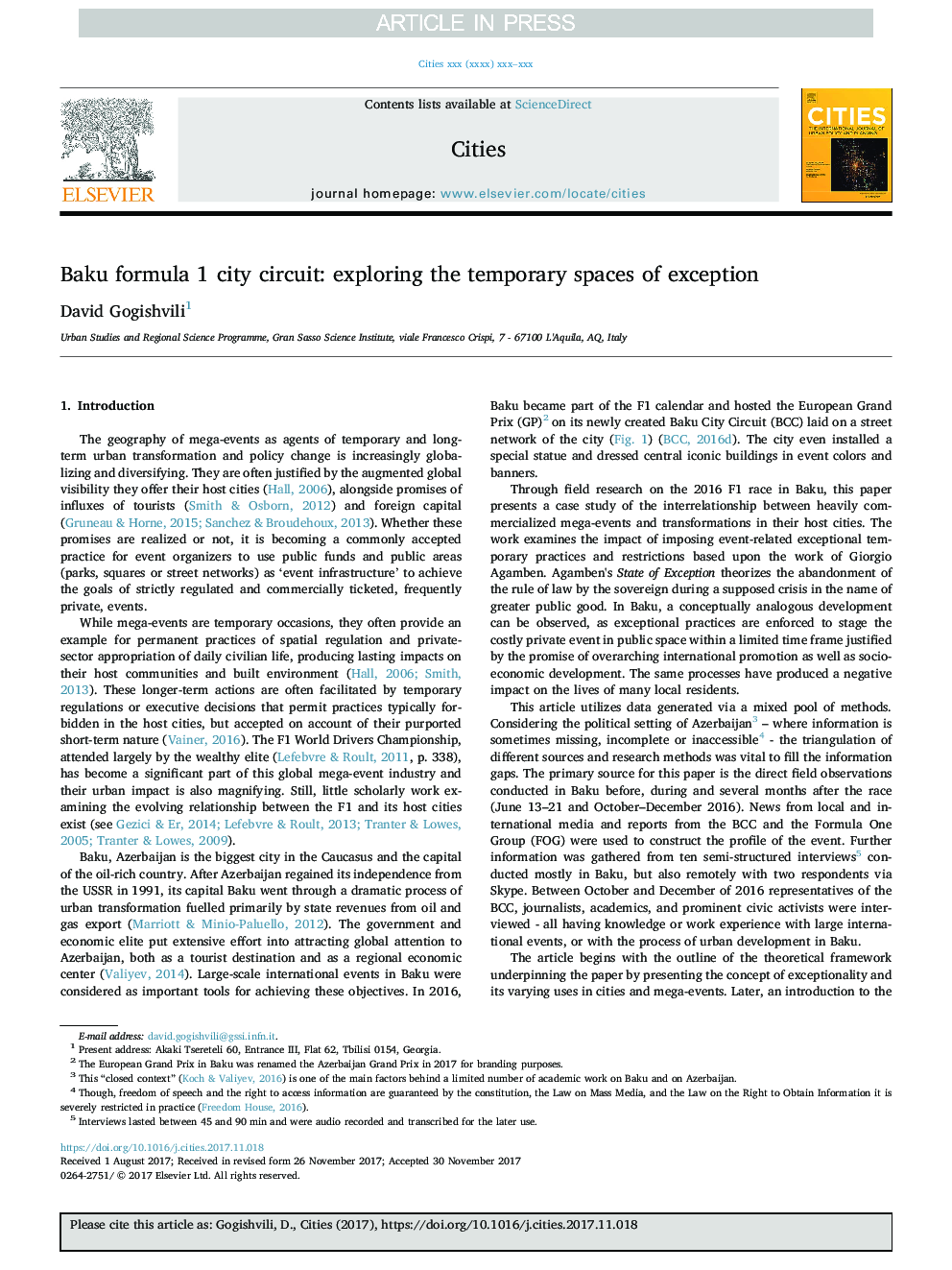| Article ID | Journal | Published Year | Pages | File Type |
|---|---|---|---|---|
| 7417538 | Cities | 2018 | 10 Pages |
Abstract
Since 2016 Baku, Azerbaijan has become the newest addition to the Formula 1 Championship. Organized in the downtown Baku, the F1 European Grand Prix has brought transformations in physical and regulatory terms by imposing temporary rules and restrictions to host this motorsport event. The result was a disruption to the local population's daily practices in the areas directly impacted by the race, as access to such areas were only made available to F1-related visitors and staff, and beyond for weeks leading up to the event. Through on-site observations and in-depth interviews in Baku, this paper explores the role mega-events, such as the F1 race, play in transforming cities and examines it's temporary and longer-term legacies. Theoretically, these processes are analyzed through Giorgio Agamben's concept of the state of exception, which theorizes the abandonment of the rule of law and introduction of an exceptional legal regime in the name of public good. The paper argues that mega-events produce spaces of exception in its host cities by declaring temporary regulations that are tailored towards the needs of the events rights holders and their commercial partners, along with national elites, normalizing the exceptional procedures and compromising the daily activities of locals in the spaces appropriated for the event.
Related Topics
Social Sciences and Humanities
Business, Management and Accounting
Tourism, Leisure and Hospitality Management
Authors
David Gogishvili,
